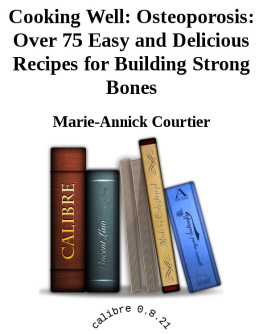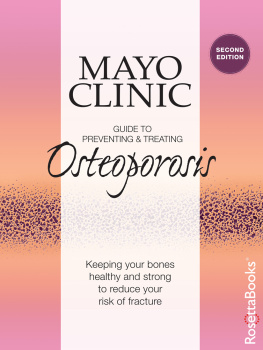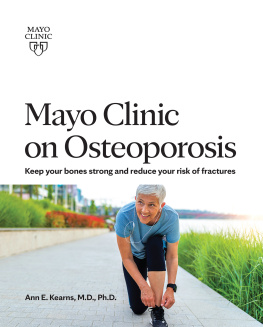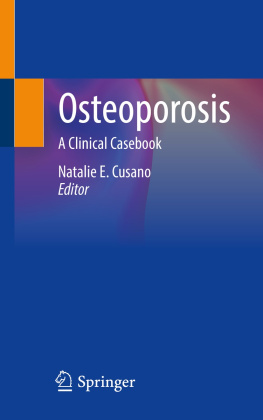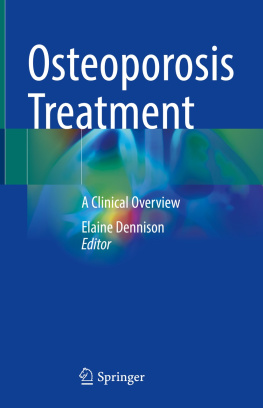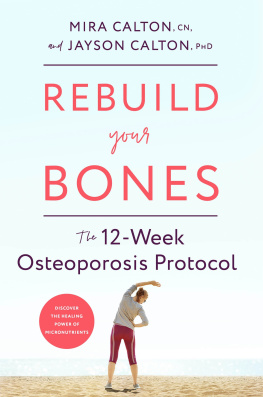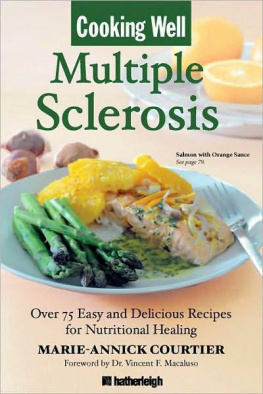
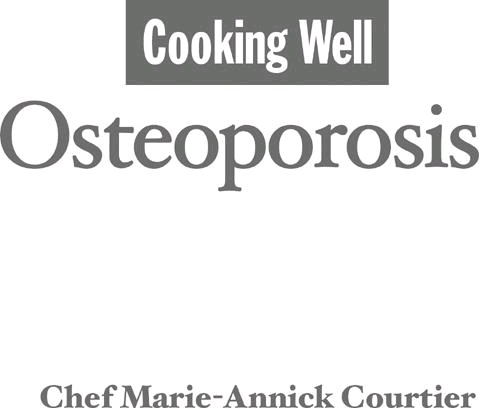
Dedication
To my mother
You are my inspiration
Chef Marie
We have long known that proper nutrition plays an important role in guarding health and preventing the onset of disease. The CookingWell series was created to help you learn more about the important role of nutrient-rich meals when living with your particular disorder.
With Cooking Well, you wil discover that there are many enjoyable ways to prepare delightful, great-tasting meals that are packed with a variety of healthful benefits.
Chef Marie-Annick Courtier, a wel -known culinary and health expert, has utilized her background in nutrition and health studies to create easy to prepare meals that are good for you and so delicious that you and your entire family can enjoy them together. Chef Marie was born in paris, where she acquired a knowledge of fresh, flavorful food that she incorporates into her healthy recipes. Today, Chef Marie is a widely-published author who also owns and operates a personal chef service.
Hatherleigh has a long history of providing our readers with books that help people improve their lives, whether through exercise, nutrition, or mental wel -being. We are pleased to share with you the message of good health in the Cooking Well series.
Andrew Flach, Publisher
Table of Contents
PART I:Understanding Osteoporosis
Living with Osteoporosis
How the Right Diet Can Help
PART II:The Importance of Nutrition
Dietary Suggestions for a Healthy Lifestyle
Foods to Avoid, Foods to Choose
Tips on Shopping
Prepping Your Kitchen
PART III:The Meals
A Chefs Secrets for Easy, Quick Meals
The Recipes
Breakfast
Soups & Salads
Fish/Seafood Entrees
Meat/Poultry/Vegetable Entrees
Side Dishes & Snacks
Desserts
Appendix A:
Meal Diary
Sample Menu
Appendix B:
Substitutions
Appendix C:
References and Resources

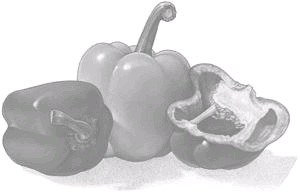
Part I:
Understanding
Osteoporosis

Chapter 1
Living with
Osteoporosis
According to the National Osteoporosis Foundation, 85 to 90 percent of adult bone mass is acquired by age 18 in girls and by age 20 in boys. It stands to reason then, that embracing a healthy diet and exercise routine in our childhood is very important in order to prevent osteoporosis later in life. An estimated 44 million Americans are at risk today. Osteoporosis can strike at any age and should not be considered only a disease for old people. The disease weakens the bones, which then can break easily. Back pain, loss of height, stooped posture and fractured bones (vertebral column, hip, rib, or wrist) are some of the most common symptoms of osteoporosis disease. Eighty percent of people with osteoporosis are women, particularly postmenopausal, and 20 percent are men over the age of 70.
Many medical reports show that eating a healthy diet can make a huge difference in the prevention of osteoporosisor in the condition of patients with the disease. Since maintaining strong, healthy bones is a priority, it is necessary to choose a well-balanced diet and exercise routine. The diet must offer an array of multiple nutrients, vitamins and minerals, with special emphasis on Calcium, Vitamin D, Vitamin K, Magnesium, Phosphorous, Boron, Manganese, Zinc, Copper, and Silicon.
A pregnant woman should particularly pay attention to her calcium intake, in order to supply the appropriate amount, not only for her body, but also for the growing baby.
Maintaining the right level of acidity in our bodies may also play an important role in the health of our bones and in preventing the possible development of osteoporosis. Scientists are further researching this theory. Medications and the interactions between them may also have negative effects on osteoporosis and should be carefully evaluated with a physician.
People with osteoporosis often report considerable improvement in their well-being once they change their eating habits. But dieting is not the only thing, exercising plays an important role as well. Walking, swimming, biking (tri-cycle or stationary bike), light weight lifting, resistance and strengthening exercises, yoga, reflexology, balance and posture exercises, Pilates, or Tai Chi are all easy on the body and help promote healthy bones and even re-build bone density. For people with osteoporosis avoiding too much protein (high intake promotes calcium excretion in urine), too much sodium (promotes calcium excretion in urine), too much caffeine (can reduce the absorption of calcium), carbonated drinks (phosphoric acid promotes calcium loss), smoking, and alcohol abuse (which damages our cells) are imperative. One other important factor is to properly monitor the disease with your doctor. He or she should be aware of your family history, your lifestyle (including physical activity and diet), general health (blood test and hormonal levels), medications, and supplements you take in order to be able to help you with your specific needs. A bone density test should be performed every year, particularly for menopausal women and elderly men.
As with many diseases, lifestyle factors are also extremely important and we will explore these below.
Lifestyle
Many people struggling with diseases, weight problems, or allergies, often dont make the connection between their eating habits and their lifestyle choices. They often do not realize how much their emotions influence everything they do in their life, including the food they eat or finding excuses not to exercise. Unfortunately those emotions can trigger eating habits that will be the cause for more pain, worse symptoms, and be very detrimental to their health.
Consequently, it is imperative that each individual look into his or her lifestyle and emotions to see how they affectfood choices. It is recommended that you do this with your physician, registered dietitian, psychologist, or care giver.
Osteoporosis patients should not smoke, as tobacco negatively impacts many of the bodys organs and is the leading cause of lung cancer. If you do smoke and have trouble quitting, consult your physician and psychologist. Here are a few tricks to get you started on improving your health. Begin by looking into your daily routine to identify bad eating habits. Example: At work, do you drink three or four cups of coffee during the day? Do you drink too much when you entertain or go out with friends? Do you snack on mostly salted foods? Do you eat foods that you crave, knowing they are not good for you? Do you drink soda when eating lunch out? Those are just a few examples to get you thinking about what you do on a daily basis.

Next page
